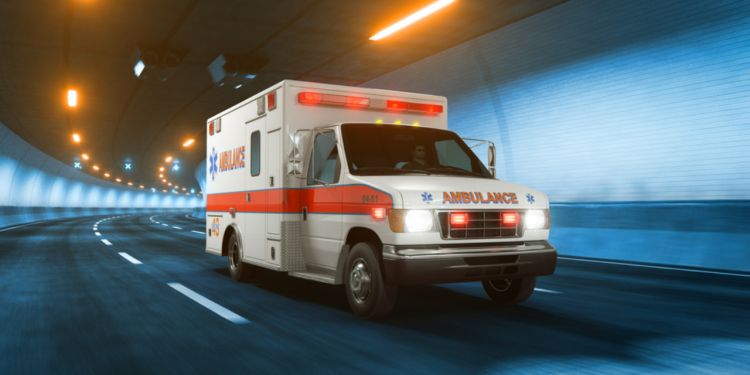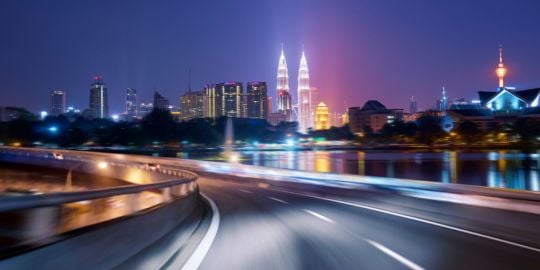Accidents and emergencies in Malaysia

Nobody is safe from an accident, an infection, or other health problems, in Malaysia or anywhere else. Before you decide to settle there or visit this country, it is necessary to find out about the risks associated with the destination and the health services available, especially in the event of an emergency.
Dangers on the road
There are many risks for travelers to Malaysia. One of the most common is undoubtedly a road accident. As a matter of fact, road accidents are not uncommon in Malaysia.
The Malaysian Institute of Road Safety Research (MIROS) reported 4,634 road accident deaths in Malaysia in 2020, compared to 6,167 in 2019. Please note, however, that travel has been heavily reduced following the first cases of Covid-19 in the country, in early 2020. Using public transport can also be risky: in May 2021, two metro trains collided in Kuala Lumpur. More than 200 passengers were injured, 47 of them seriously. Fortunately, there are a wide variety of options for getting around Malaysia.
If you are involved in a traffic accident in Malaysia, first take the time to check whether you or others involved are injured. If necessary, you can call an ambulance on 999 (national emergency number). Also, be aware of your immediate surroundings. Some areas are risky, and you may come across angry locals. If you feel threatened, the law authorizes you to leave the premises immediately to go to the nearest police station.
Thereafter, it is recommended to take a photo of damages caused to the vehicles involved in the accident, preferably before the vehicles are placed on the side of the road. Make sure license plates are visible, whenever possible, and take note of the location and time of the accident.
Also, make sure to exchange your contact details with the other driver(s) involved. Be sure to note the registration number of the other vehicle(s), model, color, as well as the name, address, ID card number and telephone number of the vehicle owner (if it is not the driver).
Finally, you have the obligation to report any accident within 24 hours to the police. A quick search on the Internet will show you the station closest to the scene of the accident. Do this even if you don't intend to file a claim with your insurance, to protect yourself against any surprise testimonials aimed at blaming you.
Tropical diseases and other health risks
As Malaysia is largely covered in dense, even impenetrable jungle, it is possible to catch a whole range of tropical diseases and viruses there, especially in remote and sparsely urbanized areas. These ailments include, for example, chikungunya, dengue fever (very common), the Zika virus, malaria, filariasis and Japanese encephalitis.
Rabies is also very common in Malaysia. It is advisable not to approach stray animals such as dogs, cats or monkeys, and to call the health services immediately in the event of scratches or bites. Without proper and prompt treatment, rabies can be fatal.
It is possible to catch various parasites by consuming water or food. Other common infections include hepatitis, tuberculosis, typhoid or cholera. It is essential to bring tap water to a boil before drinking and to avoid any raw or undercooked food.
Covid-19
The Covid-19 epidemic in Malaysia prompted the government to introduce the Movement Control Order (MOC) in 2021 to reduce travel and ensure national containment. This measure contained four distinct phases, depending on the degree of progression of the disease and the progress of the national vaccination campaign. To date, health restrictions still remain very strict. Traveling to Malaysia during a pandemic is complicated, so it's best to check our Malaysia forum before considering a trip.
Terrorism and banditry
Terrorist threat is particularly vivid in Malaysia. Since 2020, the country has seen a number of ISIS members and other international terrorist organizations transit in Malaysia. In some cases, some have even found refuge there. Several international bodies speak of the possibility of attacks targeting tourists and expatriates, in particular those of European origin. It is therefore recommended to remain vigilant when visiting tourist centers or attractions, even in large cities such as Kuala Lumpur. Stay informed and heed official warnings.
The east coast of Sabah is particularly affected by kidnapping activities. Places at risk include tourist sites, islands off the coast and diving centers. The risk is greater after dark and at sea.
Purse snatching is common, especially in urban centers. It is not uncommon for the victims of these practices to be injured. So be sure to always place your bags and luggage on the other side of traffic while you walk.
Hospital and emergency services
Major cities in Malaysia have good hospitals. Generally speaking, Malaysian ambulance services are rather fast and efficient. Public hospitals are open to foreigners, but foreigners must pay additional fees.
However, the best health care in Malaysia is still provided in private clinics, which have world-class staff. They are particularly recommended for tourists and expatriates who have good medical coverage. Please note that it is mandatory to pay in advance in most hospitals in Malaysia, especially in private clinics.
The countryside and the most remote regions are however much less provided with proper medical services. The closest healthcare services can sometimes be several hours away by car, so it is recommended that travelers and expatriates residing far from major cities keep the number of the nearest hospital and have as well as a means of transport underhand in case of emergency. A medical teleconsultation service has been set up by the government to deal with the shortage of care in remote regions.
The emergency number in Malaysia is 999. Operators on the line are generally able to speak basic English and respond quickly to callers' requests. However, some regions may not be able to be served by ambulances, especially if the road is bad, or if intervention locations are remote or if travel conditions are unfavorable.
Check our Malaysia services directory for more information on local healthcare services. We also offer you a list of doctors in Kuala Lumpur.
Health insurance in Malaysia
Even on tourist trips, it is important to be covered by health insurance when traveling in Malaysia. As already mentioned above, you will be charged additional fees at government hospitals, and Malaysian public health suffers from understaffing and long wait times. Expats can find excellent insurers locally, while travel insurance usually covers hospitalization costs for tourists.
Useful links:









